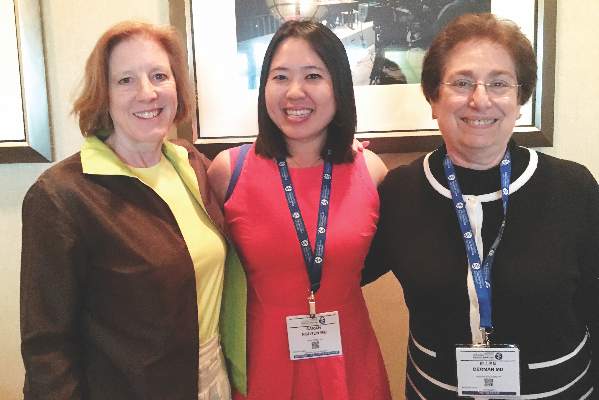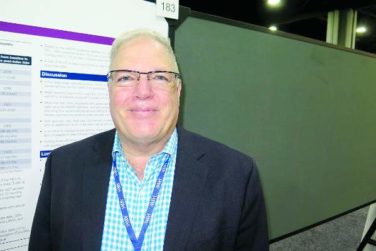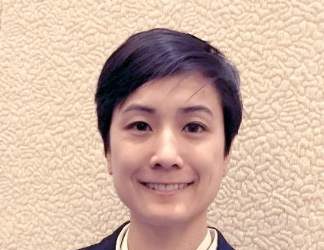These are exciting times for family psychiatry. In this column, I would like to sum up some of the key themes from the recent American Psychiatric Association meeting in Atlanta and how family fits in.
The Association of Family Psychiatrists (AFP), which has been in existence for about 40 years as an APA Allied organization, met last month during the APA annual meeting. Dr. Greg Miller is our representative on the Assembly Committee of Representatives of Subspecialties and Sections (ACROSS). This representation gives us an opportunity to ensure that family is considered in APA initiatives.
Who are we?
AFP psychiatrists are chairs of departments, residency directors, medical directors of general and psychiatric hospitals, child psychiatrists, and psychiatrists in private practice. Our members also are residents and allied members, such as psychologists, and directors of family and consumer organizations. One such organization is Families for Depression Awareness ( familyaware.org ). Its current executive director, Marlin W. Collingwood II and director of development, Valerie Cordero, attended our meeting, and encouraged us to include patient and family advocates in our presentations and activities.
Our meeting was sponsored by the Family Process Institute ( FPI ), most widely known for its journal, Family Process, the preeminent family therapy journal worldwide. We were pleased that Nadine J. Kaslow, Ph.D., attended. Not only is she a former director of FPI, but also she is the former editor of the Journal of Family Psychology. Dr. Kaslow, professor and vice chair for faculty development in the department of psychiatry and behavioral sciences at Emory University, Atlanta, also is the 2014 president of the American Psychological Association.
What do we do?
We discussed the changes in our specialty, mainly the broadening of family psychiatry to include family inclusion and family psychoeducation, and community involvement of families. We identified many opportunities to include in global health, integrated care in primary care, and specialty care. We announced a new book that I wrote with three other AFP members: Dr. Ira D. Glick; Douglas S. Rait, Ph.D.; and Dr. Michael S. Ascher. The book is called “ Couples & Family Therapy in Clinical Practice ,” 5th Edition (see www.wiley.com).
Also, at this meeting, we presented the 2016 winners for the Residency Recognition Award for Excellence in Family-Oriented Care:
• Dr. Jessica Abellard, Cooper Medical School of Rowan University, Camden, N.J.
• Dr. Aislinn Bird, Stanford (Calif.) University.
• Dr. Oliver Harper, NYU Langone Medical Center.
• Dr. Randi Libbon, University of Colorado at Denver, Aurora.
• Dr. Richa Maheshwari, NYC Langone Medical Center.
• Dr. Josh Nelson, University of Rochester, New York
• Dr. Mitali Patnaik, Drexel University, Philadelphia.
• Dr. Puneet Sahota, University of Pennsylvania, Philadelphia.
AFP’s presence at the APA
Many members of AFP and other psychiatrists interested in family care presented at the APA.
Dr. Sarah A. Nguyen and her colleagues, Dr. Daniel Patterson, social worker Madeleine S. Abrams, and Dr. Andrea Weiss, from Montefiore Medical Center, New York, presented a poster: “Importance and Utilization of Family Therapy in Training: Resident Perspectives.” Dr. Nguyen and her colleagues noted that only eight residency programs nationwide provide in-depth training in family skills and therapy. Their poster provided a PGY-4 resident perspective on the significance that family therapy training has in understanding the ways in which the context of family and larger systems has an impact on the individual.
An understanding of the resident’s own family, cultural, and social context also serves as the springboard to broaden the individual biopsychosocial conceptualization. This personal development was an essential turning point for continued professional development, as the progression of each year of training allowed for a greater appreciation of the complexity of the individual within the family and larger systems context.
Working with cultural psychiatrists
Several cultural psychiatrists are members of AFP and the Society for the Study of Psychiatry and Culture ( SSPC ). Psychiatry has evolved from the study of the individual to the study of culture, with minimal discussion of the family that mediates between the individual and the culture. Two APA workshops addressed this gap in theory and practice: “Contextualizing the patient interview” (which I conducted this with Dr. Ellen M. Berman) and “ Cultural Family Therapy ” (Dr. Vincenzo Di Nicola and Dr. Berman). The theme of SSPC’s 38th annual meeting, which will run from April 27-29, 2017, in Philadelphia, will focus on the role of family in culture (See psychiatryandculture.org ) for details.
Dr. Francis G. Lu, presenting at his 32nd consecutive APA, gave the APA Distinguished Psychiatrist Lecture on Cultural Psychiatry. He also held a media session called “ The Resilience of Family in Film : Aparajito.” This movie by Indian director Satyajit Ray depicts love, loss, tragedy, and resilience in the family of Apu. Dr. Lu led the audience through a nuanced discussion about the power of film to enhance our understanding of “other” and culture, and its impact on our practice.
“Liminal” or “threshold” people are terms that Dr. Di Nicola uses to describe people at the margins of society. These are people who are most at risk for illness. Immigrants, one type of threshold people, tend to congregate in close family communities. Addressing the family as a unit acknowledges the family’s role as the bearer of culture, and as the bearer and interpreter of illness and health. Dr. Di Nicola states: “I believe that each family is the bearer of the culture within which it is embedded and the vehicle for intergenerational transmission, for maintaining culture, and for generating its own small scale cultural adaptations, yielding three yoked family functions: cultural transmissions, cultural maintenance/coherence, and cultural adaptation” (For details, see http://www.slideshare.net/PhiloShrink/cultural-family-therapy-integrating-family-therapy-with-cultural-psychiatry).
Working in global mental health
Once again, psychiatry is beginning to recognize the importance of the social determinants of health. Severe stress tied to rapid and massive culture change, social trauma that occurs with immigration, and the experience of refugees, war, incarceration, all affect the health of the family and individuals.
Dr. James Griffith, chair of the department of psychiatry at George Washington University, Washington, promotes the inclusion of families in global mental health. Few mental health providers are on the global stage, and so families essentially act as health care extenders. Prior to current hospital practice, families would stay in hospital waiting rooms and sleep by the patient’s bedside. Families took care of patients, feeding and changing them, and assisting the nurses. Families provided reassurance, support and comfort to their sick relatives and acted as their advocates. In China, in American mission-run hospitals, families were indispensable (“ Family-Centred Care in American Hospitals in Late-Qing China ,” Clio Medica, 2009;86:55). In the 19th century, fear of infectious diseases prompted hospitals to discourage this practice.
Today, in developing countries, families are still indispensable – both for medical and psychiatric care. Families can be educated and welcomed as members of the treatment team.
Understanding the patient’s family system and its relationship to the culture at large is indispensable when developing effective interventions. Providers who can initiate discussions with families about the stigma of mental illness, etiology, and relapse prevention, and set the stage for better patient outcomes. Families with cell phones can be given access to Internet educational and patient care programs.
Integrating families into health care
Dr. Eliot Sorel, an internationally recognized global health leader, educator, and health systems policy expert, advocates for moving mental health into public health. The fragmentation of the health care system makes it imperative that families understand the challenges of navigating the health care system. APA public health position papers can be amended to include the wording “patient- and family-centered care.” The integration of physical and mental health in the delivery of general health care allows for many opportunities for family involvement. Dr. Atul Gawande, the foremost physician spokesperson for health care reform, focuses on the need for team-based health care reform, from the bedside to population management. Family members are key people on the health care team.
Relational psychiatry and the DSM
Family psychiatry is sometimes referred to as relational psychiatry. The study of relationships range from courting behaviors, attraction, marriage, child rearing, interpersonal violence, and grieving. Attachment theory helps us understand the strong bonds between family members, and the formation of individual and family identity. At a social level, the bonds between the family and society/culture/community are looser but still strong and contribute to a sense of belonging.
There has been a strong push for including relational diagnoses in the DSM. The rationale for inclusion is twofold: to bring attention to relational difficulties and to bring validation to those diagnoses tied to insurance coverage and payment. For a debate with Dr. Marianne Z. Wamboldt about the pros and cons of the inclusion of relational diagnoses in the DSM see “Relational Diagnoses and the DSM,” Clinical Psychiatry News, Families in Psychiatry, Oct. 19, 2012).
Currently as psychiatrists, we bill family meetings and consultations using codes 90846 and 90847. Meeting families occurs as part of the initial assessment of the patient. This interview assesses for strengths and stressors in the family system, and can be billed as part of the initial assessment. With the move to population health care, we will begin to see changes in physician reimbursement and increased recognition of the role of families in contextualizing the patient’s experience.
Families and advocacy
The Mental Health Parity and Addiction Equity Act of 2008, or the Parity Act , requires health insurance carriers to achieve coverage parity between Mental Health/Substance Use Disorders (MH/SUD) and medical/surgical benefits. The MHPAEA originally applied to group health plans and group health insurance coverage, and was amended by the Affordable Care Act to apply also to individual health insurance coverage. The Parity Act was the signature achievement of former Rep. Patrick J. Kennedy’s 16 years in Congress. At the APA, Mr. Kennedy said: “The brain is an organ – a part of the body – and needs to be covered like all other organs.” He encouraged us to continue to advocate for the rights of people with mental illness. In his writing and advocacy work, he frequently references his own family. His is one of the many ways of doing family work.
Looking for allies
AFP has allies in all areas of psychiatry. Family psychiatrists think family in all subspecialties, from child psychiatry, psychosomatic medicine, global health to geriatric psychiatry. Where ever we work, we emphasize the importance of including families in patient care, and educating and supporting families, and when needed, providing family therapy or access to family therapy. Our activities are described on our website, www.familypsychiatrists.org . We welcome any psychiatrists interested in integrating family care into their specialty area. Those interested in joining us should contact our president, Dr. Berman, at emberman@yahoo.com .
Providers who can initiate discussions with families about the stigma of mental illness, etiology, and relapse prevention, set the stage for better patient outcomes. Families with cell phones can be given access to Internet educational and patient care programs.
As psychiatry continues to evolve and become more evidence-based, let us research how to use the strengths that lie within the family system, acknowledging the support that patients find among their families and communities. As former Rep. Kennedy states: “Our country is a young country, and we are still finding out who we are.” In a similar way, psychiatry is a young medical specialty. Let us become a specialty that truly honors families.
The Family Process Institute offers a writing workshop to emerging writers in family therapy that is open to all residents and early career psychiatrists. See www.familyprocess.org/newwriters for details. Dr. Heru is professor of psychiatry at the University of Colorado, Denver. She is the author of several books, including “Working With Families in Medical Settings: A Multidisciplinary Guide for Psychiatrists and Other Health Professionals” (Routledge, 2013).





